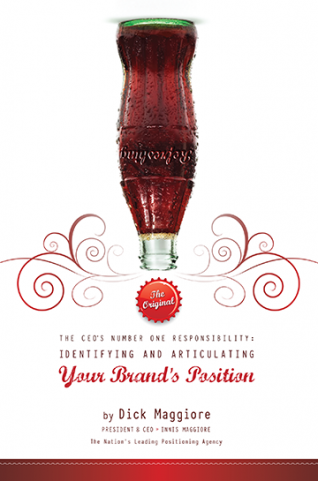Brands have always been focused on tailoring their approaches to various demographics, among them being generations. From messaging to tactics, brands must crack the generational marketing code for every demographic to achieve the best results. For example, Baby Boomers can be receptive to a mix of traditional and social media marketing. Millennials, though, embrace their digital heritage, moving marketers to test more email marketing, digital ads, and user-reviews throughout this audience’s decision-making process.
Even as many advertisers believe they’ve uncovered the inner workings of demographics like the Baby Boomers, Gen X, and Millennials, a new age group, Generation Z, has officially made its way into the line of sight for generational marketers. With over 7.3 million of its members working full-time, and another 6.3 million taking on part-time positions, this generation has quickly accumulated $450 billion in spending power (U.S. Bureau of Labor Statistics; Snapchat)
Gen Z’s growing presence has created a substantial amount of unclaimed territory, leaving marketers scrambling to find the answer to generational marketing’s latest question — how can we attract the Zoomers?
What do we know about Generation Z?
Gen Z has always lived in a world of rapid digitality. Unlike their predecessors, Zoomers have always been immersed in the ever-changing landscape of technological advances, and as a result, have adopted a keen awareness and adaptability to change, making it difficult to pinpoint the right generational marketing tactics. Evidence of these characteristics is best exhibited in the generation’s attention to shifting trends in music, fashion, and other cultural phenomena.
Another standout feature of Gen Z is its emphasis on experiences rather than material goods. These interests span from the small moments like purchasing an artisan latte from a local coffee shop to larger activities like elaborate multi-country vacations.
Despite the emphasis on “experiences,” it would be a generational marketing misstep to believe this demographic is made up of a bunch of spendthrifts. However, Gen Z is actually quite prudent. Hyper aware of rising costs and the financial reality of previous generations, these young adults are careful decision makers when it comes to spending their dollars — meaning brands must be equally precise with their generational marketing.
The other focal point of the Zillenial mind is the careful concern for today’s social issues. Conversations concerning mental health, diversity and inclusion, sustainability, and humanitarian efforts are immensely important in capturing the loyalty of a generation that believes in looking beyond the material.
Undoubtedly, there’s one particular emphasis that ties all of Gen Z’s characteristics together: authenticity. This generation is meticulous in its decisions and loyalties. To win this generation's hearts and minds, a brand must demonstrate sincerity in every aspect of its generational marketing above all else.
How are marketers (trying) to reach Zoomers?
When Generation Z entered the market, many brands experienced trouble finding the right approach with such a digitally cognizant age group. Yet, after some trial and error, one tactic is believed to be the key to reaching them.
Native advertising has become one of the primary generational marketing tactics for attracting Zoomers. By focusing on today’s social media platforms, these brands have a front-row seat to this particular audience. You can find native ads on virtually all platforms, including Instagram, Facebook, and TikTok, as well in virtually any internet search.
The magic behind native advertising is its ability to camouflage within a normal social media feed. These ads appear more organic, eliminating the feel of overly promotional marketing. When Zoomers come across native ads in their feed, this discrete form of generational marketing makes them more likely to investigate a product or brand, and make a purchase. In fact, 72% of Zoomers are more open to ads seen through their social media feeds as reported by NC Solutions. Another 43% admitted they are willing to entertain marketing content deemed amusing, leaving a substantial opening for advertisers to entice the generation to choose them.
Finding this opportunity with a generation as digitally aware generation has left many brands feeling relieved. As Positionists® though, we know to be wary of relying solely on these types of “successful advertising recipes,” even with generational marketing.
Now, we’re not denying the efficacy of native ads in making a sale with a Gen Z audience, but before placing all your eggs in one basket, first consider the question of brand loyalty. Your ad may attract Zoomers in terms of cleverness, style, or subtle placement, but will it convince them to purchase your products again? If optics and delight are the only components convincing your audience, what will stop your competition from employing the same generational marketing?
When it comes to winning the minds of Gen Z, it’s important to remember Gen Z's regard for authenticity when selecting goods. Without sincerity, brands are left to a generational marketing face-off fought with brawn rather than strategy. And despite all the efforts from a company and its competitors, the battle results in the purchase of a singular conversion rather than a lifelong brand loyalist.
The minds of modern penny pinchers
Generational marketing that fails to secure the loyalties of Gen Z then becomes subject to its financial caution. As stated before, this generation may have an eye for trends, but it also keeps tight control over its purse.
Statista found 66% of Zoomers were willing to wait until a brand lowered its prices before making a final purchase. Similarly, 29% “would switch their loyalty from one brand to another” if presented an exclusive discount offer (Sheer ID). The other threat to brands with weak generational marketing is the purchase of duplicate, or “dupe,” products rather than the real deal. With gargantuan marketplaces like Amazon at its fingertips, it’s no wonder 49% of Gen Z is more than willing to find an imitation product than pay a premium price.
Positioning brings authenticity to generational marketing
There’s no doubt the battle for the minds of Generation Z has been one of the greatest challenges for marketers in recent years. Not only is it hard to hold this generations attention, but the heat of creeping competitors, name brand and dupe alike, only compacts the mounting stress of securing loyal customers.
Despite the pressure-cooker landscape, the answer is more obvious than you may think. As America’s #1 positioning ad agency, we know generational marketing success rests in the mind of the prospect. Getting inside the mind of Generation Z means focusing your marketing on authenticity, and nothing is more authentic than your brand position.
Positioning strategy is about owning a meaningful difference in the marketplace. Uncovering your position means uncovering your brand’s overall purpose. It becomes the foundation of your products, the in-store and online experience, your generational marketing campaigns, and many more aspects of your business. Ultimately though, by adopting a position, you’re also embracing the authenticity of your brand.
Though positioning is a strategy that works in the minds of all humans, it strikes a particular chord with Zoomers. After examining the motivations of this generation, in many ways, one could say members of this generation are the ultimate positionists. As a generation with particular criteria and wants when it comes to brands, it is an age group that’s looking for brands that own who they are.
This reality brings us back to the notion of “successful generational marketing recipes.” Native advertising may resonate with Gen Z’s distaste for sales-heavy marketing, but it doesn’t necessarily inspire repeat business. Other tactics like micro influencers and podcast promotion add that dimension of sincerity and trust valued by Zoomers, but they can come at steep costs. Ultimately though, successful generational marketing for this demographic isn’t about placement, aesthetics, or celebrity endorsements. It’s about making your authenticity tangible in the marketplace, and there’s no better way to greet such a perceptive audience than with positioning strategy.
Interested in enhancing your generational marketing with an authentic approach? With tools like our Appreciative Discovery® process, our team of experts is always ready to position clients for success. Click here to learn more.



